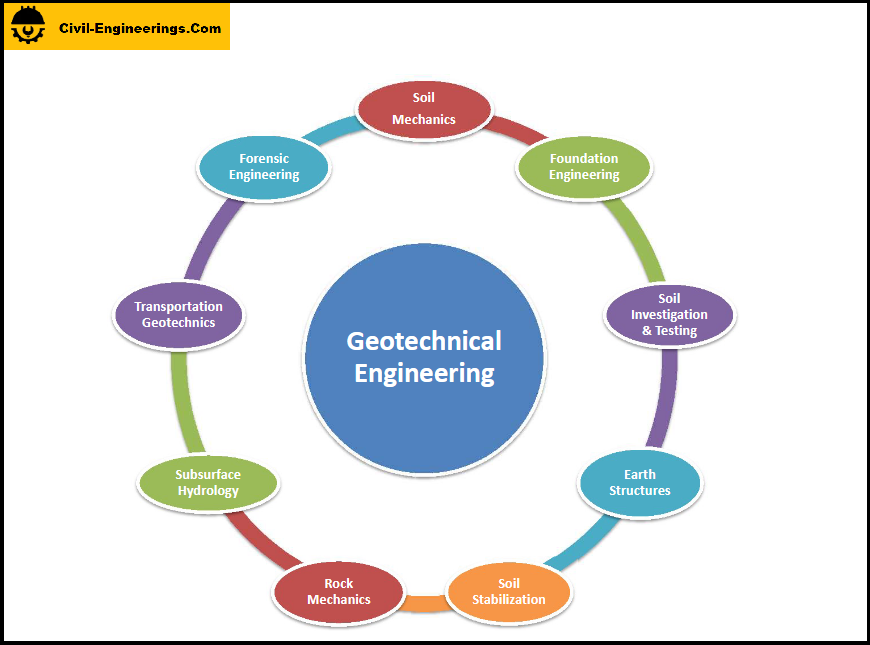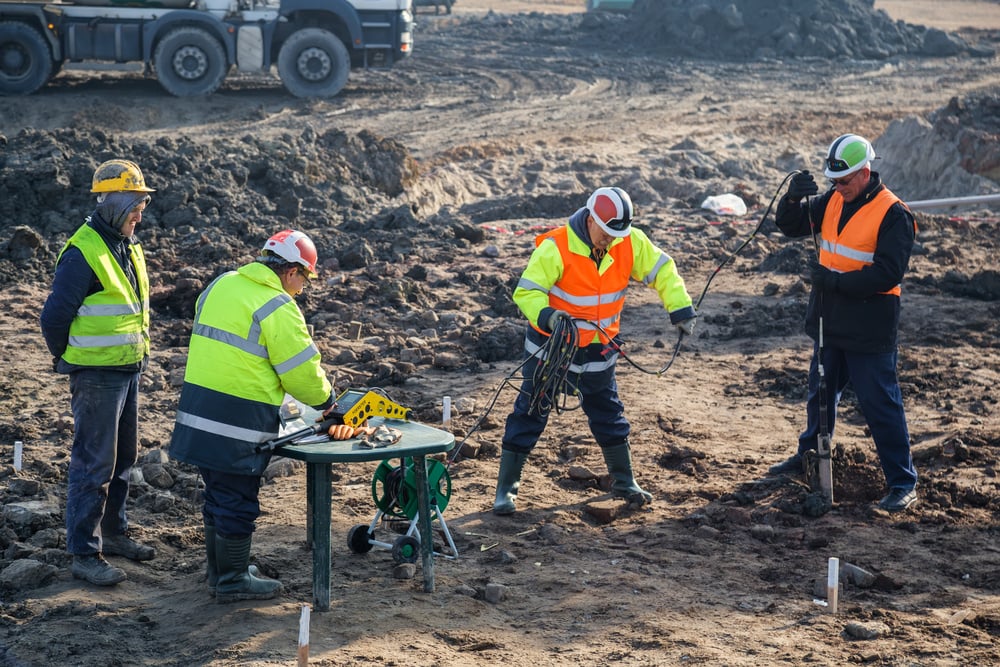Geotechnical Engineering For Construction Projects Fundamentals Explained
Table of ContentsFacts About Geotechnical Engineering For Construction Projects RevealedThe Basic Principles Of Geotechnical Engineering For Construction Projects The Best Guide To Geotechnical Engineering For Construction ProjectsThe 5-Second Trick For Geotechnical Engineering For Construction ProjectsThe smart Trick of Geotechnical Engineering For Construction Projects That Nobody is Discussing
Therefore, during the investigation, it is very important to pierce at the needed depth and the required variety of openings as per the recommendation of the Canadian Foundation Layout requirement. Occasionally, the proprietor might save some Geotechnical Investigation cost but end up investing more than the anticipated during the construction expense.The obligations of the geotechnical specialist entail offering product screening for building support. Geotechnical Engineering for Construction Projects. Geotechnical designers analyse all the area test reports to make sure that building is going on as per the job specification. During building and construction, a confirmatory test for soil compaction is done on-site to ensure that no future negotiation takes place
After the concrete is put -7 days and 28 days- examinations are conducted on concrete examples accumulated from the site to ensure that the concrete put fulfills the style requirement. Asphalt core is taken after the Asphalt is laid and compressed to verify that it meets the design criterion. All research laboratory examination records are analysed by the Geotechnical Engineer to make sure that it meets the job specification.
Fascination About Geotechnical Engineering For Construction Projects

Geotechnical design plays a crucial duty in ensuring the stability of building and construction projects. Learn exactly how it impacts style and general job success. Geotechnical design is an essential branch of civil engineering that concentrates on understanding the behavior of planet products, such as soil and rock. It entails analysing subsurface conditions to guarantee that a building's foundation or facilities is steady and safe and secure.

For a dependable structure and a smooth building and construction process, depend give the know-how you require. Contact to obtain professional advice and geotechnical solutions tailored to your following project.
All about Geotechnical Engineering For Construction Projects
When starting a land development task, comprehending the ground beneath your feet is as essential as the frameworks you intend to build over it. Our Geotechnical Engineering team evaluate the ground, guaranteeing it is ideal for the proposed advancement while offering you with the information called for to fulfill your job objectives.
Geotechnical Design checks out the formation of the ground, as it is the foundation for all tasks. Where frameworks need to be designed with regard to the ground conditions; ground conditions (e.g., soft ground) might require enhancing depending on the dimension of the intended structure. Before structure, you need to understand about the groundwater, dirt structure, and liquefaction possibility of your land.
For websites that are not connected on the regional authority facilities added website investigations would certainly be needed to give technical inputs for on-site stormwater and wastewater. We have actually experienced Geotechnical Engineers based in each workplace, sustaining your geotechnical needs across the country. Reach out to us to discuss how we can support your next job.
These reports are tailored to satisfy the particular demands of a project and include design parameters and advice for the building of a variety of manufactured structures. As giving consultancy services covering locations such as incline stability and load-bearing capabilities for various products, these engineers take on research study and advancement activities to improve techniques, tools, products expertise and analysis covering entire lifecycles.
The Facts About Geotechnical Engineering For Construction Projects Revealed

Prices of pay normally raise as your expertise and skills grow, with guidelines directing to a graduate starting salary of in between 18,000 and 28,000 per year in the UK. This increases to 26,000 to 36,000 with a few years of experience and afterwards getting to 40,000 to 60,000+ for senior, chartered or master designers.
With the he said right application it is possible to master the occupation and gain entry to a tough yet gratifying and essential occupation. A geologist would require to retrain to end up being a geotechnical engineer, although there is a lot of cross-over in between both professions, which can make this easier - Geotechnical Engineering for Construction Projects. Rock hounds require to have an understanding of soils, rocks and other products from a scientific point of view, while geotechnical designers tale their knowledge of matters such as dirt and rock mechanic, geophysics and hydrology and use them to engineering and ecological jobs
When beginning, these engineers will often tend to service less complicated tasks, developing understanding and experience all set for more difficult work later on. Geotechnical engineers often tend to be experts in certain locations as they grow in experience, concentrating on specific frameworks such as railways, roads or water. These designers also collaborate with renewable resource, offshore and onshore oil and gas, nuclear power, and extra.
Geotechnical Engineering For Construction Projects Fundamentals Explained
The time taken to end up being a geotechnical designer depends upon where you are based, where you study and what level of education you desire to obtain prior to going into the work environment. Are you going to discover an apprenticeship, take a college degree or work on in the direction of a Master's Continue or PhD? However, generally-speaking it takes 3-4 years to get to the fundamental requirements to begin a profession as a geotechnical engineer.
These procedures make it possible for professionals to evaluate a host of soil auto mechanics consisting of weight, porosity, void-to-solid fragment ratio, leaks in the structure, compressibility, optimum shear toughness, bearing capability and contortions. If the structure calls for a deep foundation, designers will certainly utilize a cone infiltration examination to estimate the amount of skin and end bearing resistance in the subsurface.
When evaluating a slope's balance of shear stress and anxiety and shear stamina, or its ability to withstand and undertake movement, rotational slides and translational slides are generally taken into consideration. Rotational visit this page slides fail along a bent surface, with translational slides taking place on a planar surface area. A professional's objective is to identify the problems at which a slope failing might occur.
Frequently, findings recommend that a site's dirt need to be dealt with to boost its shear strength, stiffness and leaks in the structure before layout and building and construction. When it comes time to lay out foundation strategies, professionals are progressively concentrated on sustainability, even more specifically how to reduce a foundation's carbon impact. One tactic has been to change 20 percent of a structure's concrete with fly ash, a waste item from coal fire nuclear power plant.